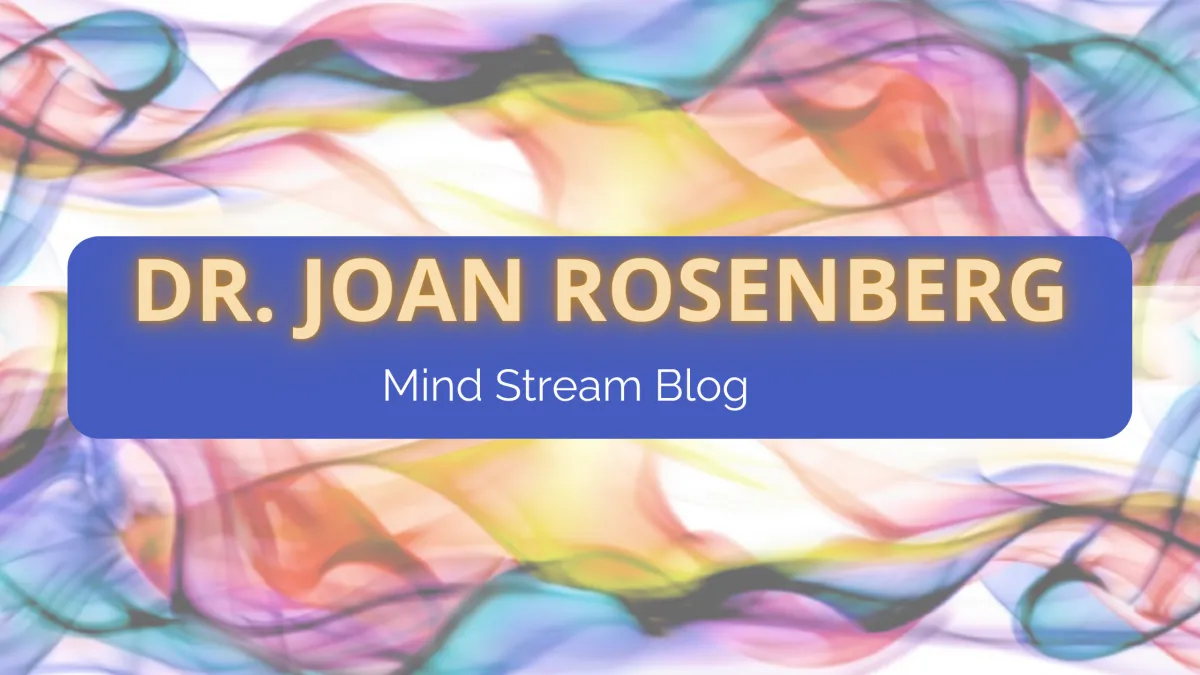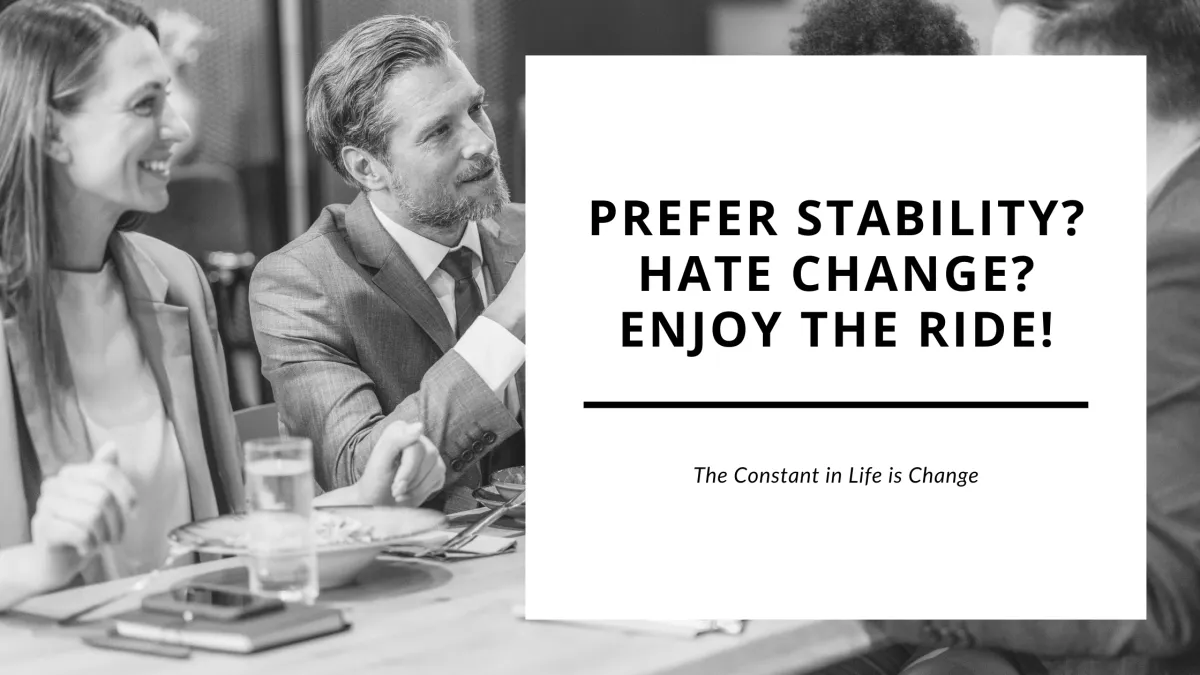

Prefer Stability? Hate Change? Enjoy the Ride!
Prefer Stability? Hate Change? Enjoy the Ride!
There will never be a moment of your life that will repeat, and you can never fully re-experience a moment that you have already lived. So, life is really about change. Life is about solving the various challenges and problems you are faced with daily – – it is much more about handling the constancy of change, rather than the constancy of routine.
Generally, you are lucky when things remain stable and predictable over long periods of time. Usually, most people seek stability in their lives. No doubt you find that the predictability and consistency of your routine helps you feel safer and more secure in the world. Having stability and predictability in your life is great – – but I’d like you to expand your focus. Think about establishing enough order and routine in your life that you experience a sense of continuity. Then life feels stable and predictable. But also develop your capacity to be emotionally flexible, so when unpredictable events and situations occur, they don’t throw you into extreme anxiety or emotional chaos.
While most of us want and appreciate periods of stability – the absence of significant changes lulls us into a false security. Your real focus should be on developing your capacity to manage change. Remember, you can never go back and fully live or relive a moment as you experienced it in the past. Family therapists, many psychologists and biologists use the word homeostasis – or a balanced state – as a goal for us to achieve. Homeostasis – remaining stable by staying the same. For example, in the ideal, a family that was functioning in a stable manner could be described as having achieved a homeostatic state –or a balanced state – or homeostasis.
There is another term that neuroscientists (brain researchers) use to describe how we function – that term is allostasis. Allostasis – remaining stable by being variable or achieving stability by adapting to change. The concept of allostasis, in essence, is maintaining stability through change. It is a physiological process by which living organisms (including humans) adjust moment-to-moment to both predictable and unpredictable events. Allostasis describes the amount of energy you have available to achieve a given task.
For instance, the amount of energy you need to read a book is different from the amount of energy required to stand up and lecture to a group of 150 people, and different still from energy needed to hike 3 miles, walk 3 miles or swim 3 miles. Each activity requires a different level of energy.
When your body is overtaxed and doesn’t have the amount of energy needed for the task, neuroscientists call this allostatic load. You can be overtaxed physiologically, and this stress can come from how you handle internal mental stress as well as the stress or stressful situations you experience from demands outside yourself, from the environment in which you live – like reports due at work, deadlines for certain tasks, even waiting in traffic jams or long lines is stress from outside of you. So, when at rest, you want to have homeostatic balance. When engaged in any activity, you want to have adequate energy to meet the needs of the activity or to achieve what you want to achieve. Think of this as your allostatic balance – remaining stable by being variable – or maintaining your internal viability regardless of the changing conditions inside and outside of you.
So, what can you think about and do?
· First, what is your attitude toward change? Is it toward maintaining a strict routine and order?
· Second, how do you handle change? By contrast, how do you handle sameness?
· Third, what is the best balance of routine and variability in your life?
· Fourth, decrease clutter or things that you “save” to create a greater sense of order in your environment.
· Fifth, establish routines around time if they don’t exist (e.g., consistent dinner/bedtimes) to increase order and enjoy occasional breaks from these routines to enjoy change. Learn to enjoy routine, predictability, and stability (though know it is not permanent).
Know that you will be the most effective when you are accepting of adept at and put energy into maximizing your capacity to handle change. Of course . . . the paradox . . . the constant in life is change.
